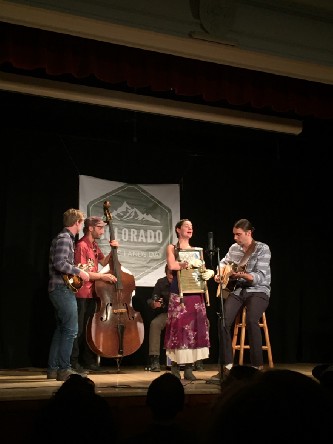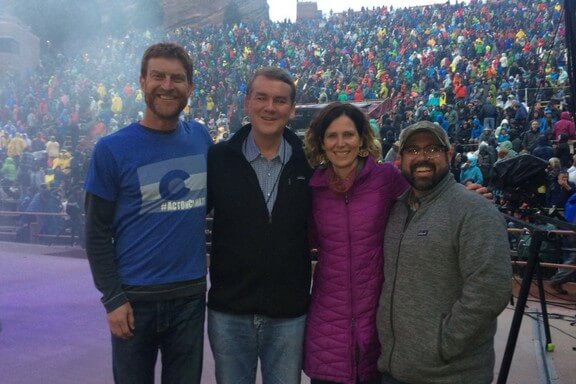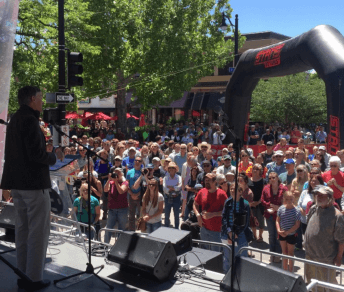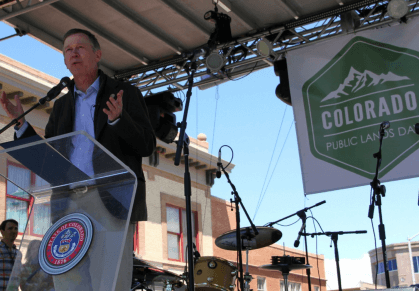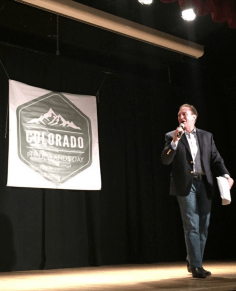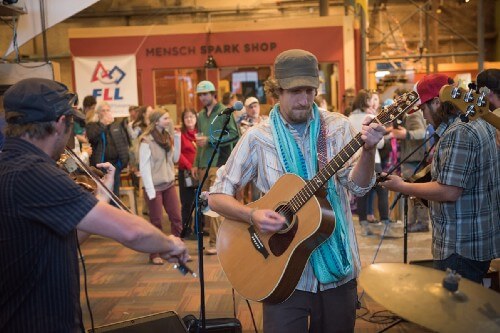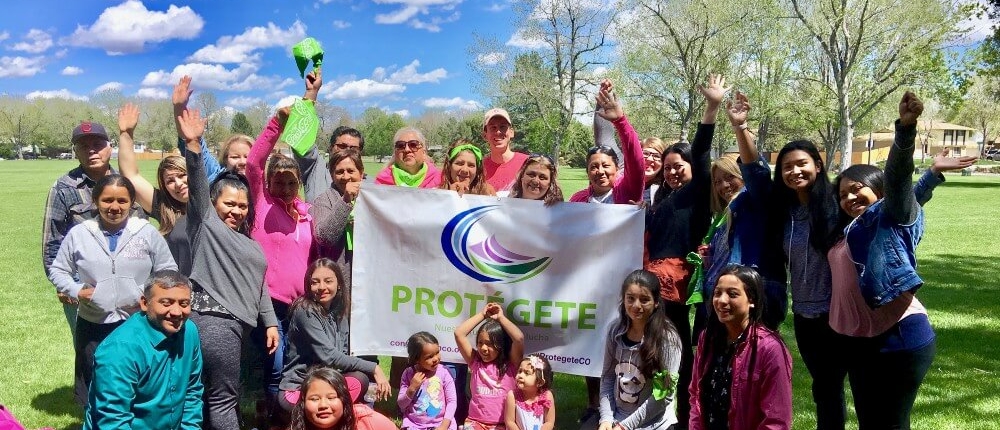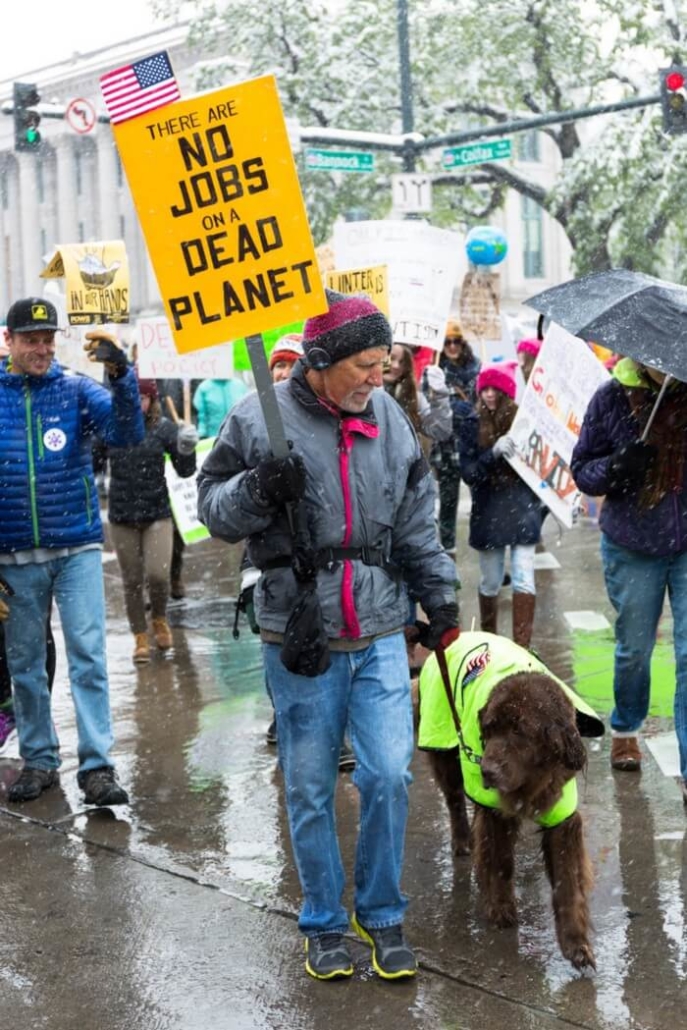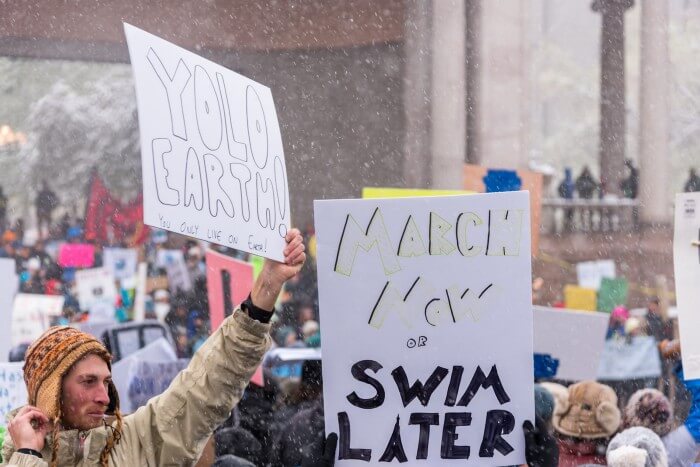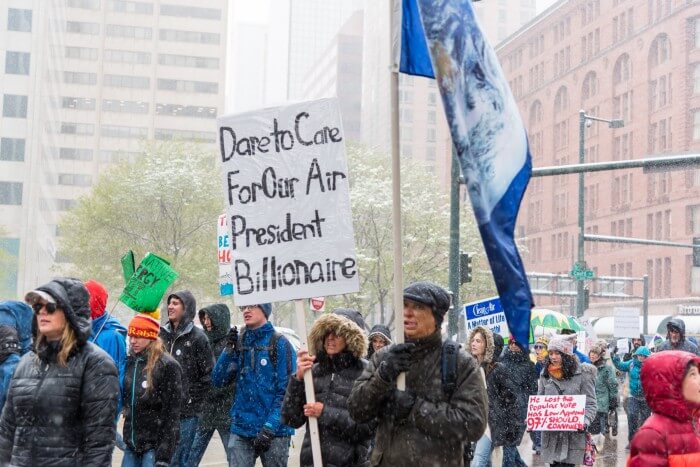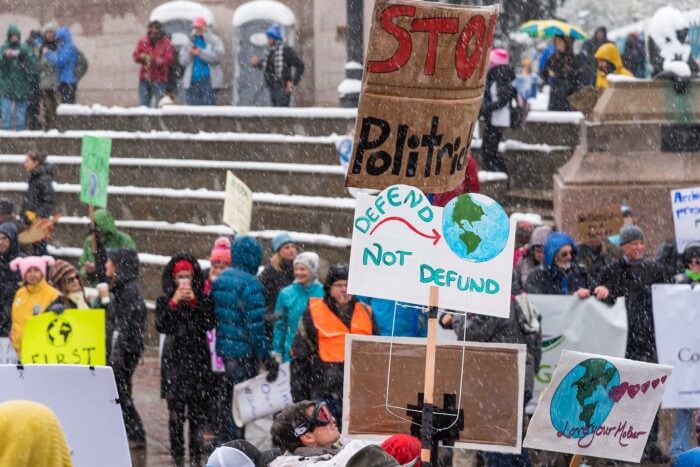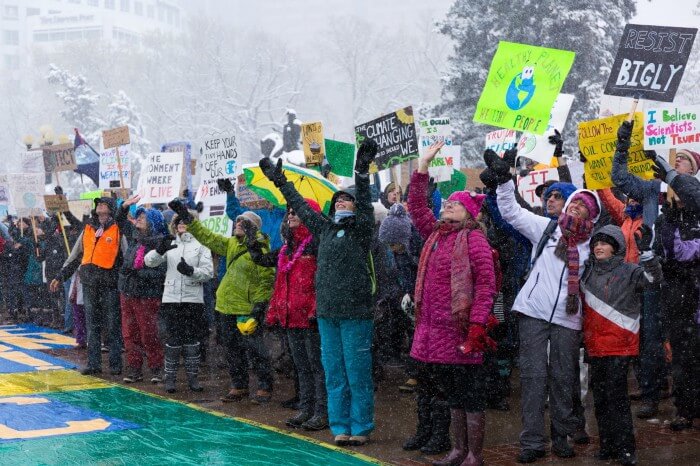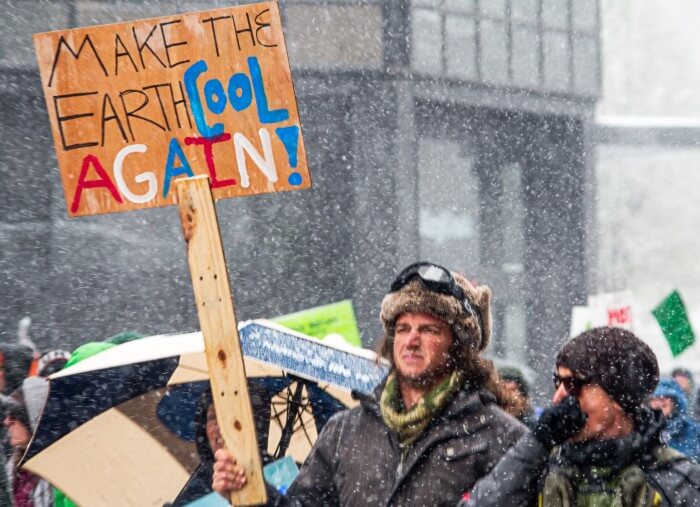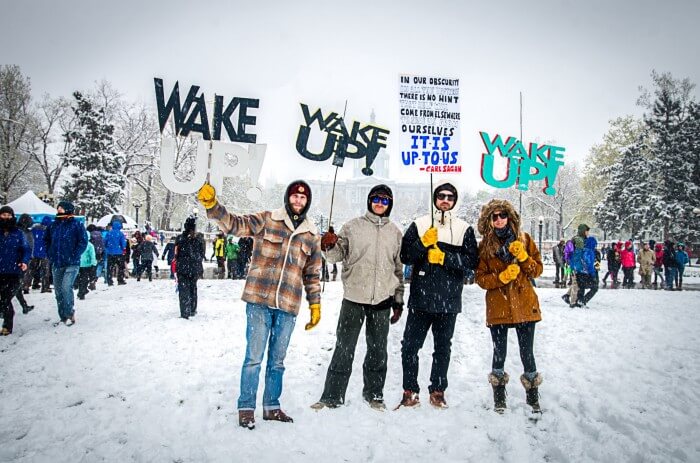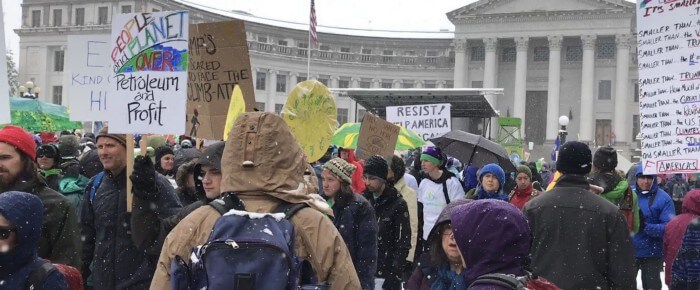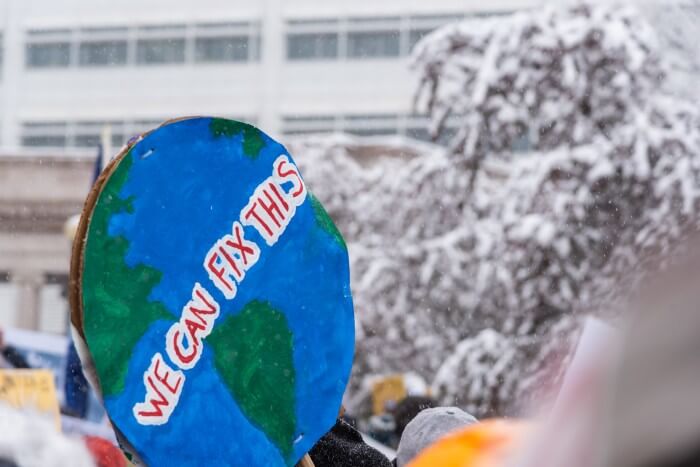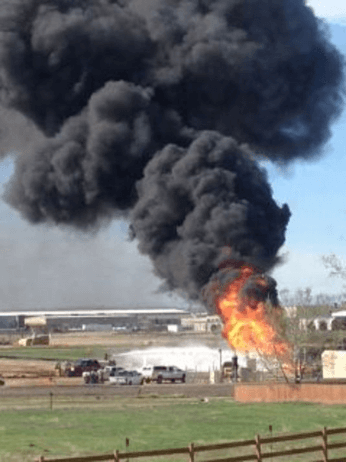Written by Audrey Wheeler
The first-ever Colorado Public Lands Day was celebrated this weekend with 137 events across the state. This new holiday is the first of its kind for any state in the nation, and was created by our Colorado legislature in 2016 to occur on the third Saturday of May each year.
This year, events ranged from volunteering to bicycling to hiking to drinking beer. Volunteers came together to restore trails, plant native species, and clean up our wild places. Ten breweries jumped on board with limited-edition craft brews to honor public lands.
Some big names were involved in the festivities. Colorado-based band Elephant Revival hosted a trail cleanup event, played an acoustic set at a Colorado Public Lands Day event, and gave a shoutout to our public lands from the stage at the Red Rocks music venue on Sunday.
Backstage with @ElephantRevival & @ConservationCO last night at #RedRocksCO celebrating our iconic public lands. pic.twitter.com/Pm8dnl4ZRa
— Michael Bennet (@SenatorBennet) May 22, 2017
The band, which has made a bold commitment to protecting public lands, was the “official sound” of the holiday this year. U.S. Senator Michael Bennet and Conservation Colorado Executive Director Pete Maysmith got onstage at their Red Rocks show to urge the audience to protect public lands. Senator Bennet urged the audience to celebrate and protect our public lands because “our work is not done.” Hundreds of people took action with Conservation Colorado to support our national monuments.
In addition, many other Colorado politicians came out to celebrate the holiday. Governor Hickenlooper spoke about public lands protection to a packed street at the Grand Junction Epic Rides Fest. U.S. Congressman Ed Perlmutter, who represents the Golden area, commented that “In Colorado, public lands are part of our DNA,” when he spoke on stage at one of our marquee events the American Mountaineering Center in Golden.
The holiday was established in large part due to the efforts of state Senator Kerry Donovan. Donovan said of the holiday, “Since we passed it, there have been some very real challenges and political discussion around the threat against public lands staying public. I think it has a new significance, showing how important it is that our public lands stay public and accessible to all.”
It’s true that this holiday could not have come at a better time. Right now, the attacks on our public lands are all too real, from a “review” of 27 treasured National Monuments to halting the work of over 200 advisory boards for the Department of the Interior. Fortunately, the inaugural Colorado Public Lands Day proved that Coloradans are ready to stand up for their public lands.
In all, the holiday was an enormous success for celebrating and honoring our public lands. The widespread participation in Colorado Public Lands Day is proof of Coloradans’ affinity for protecting our public lands. We can’t wait to celebrate next year!
Cover image: Celebration for Colorado Public Lands Day at a brewery. Anna Peterson.

